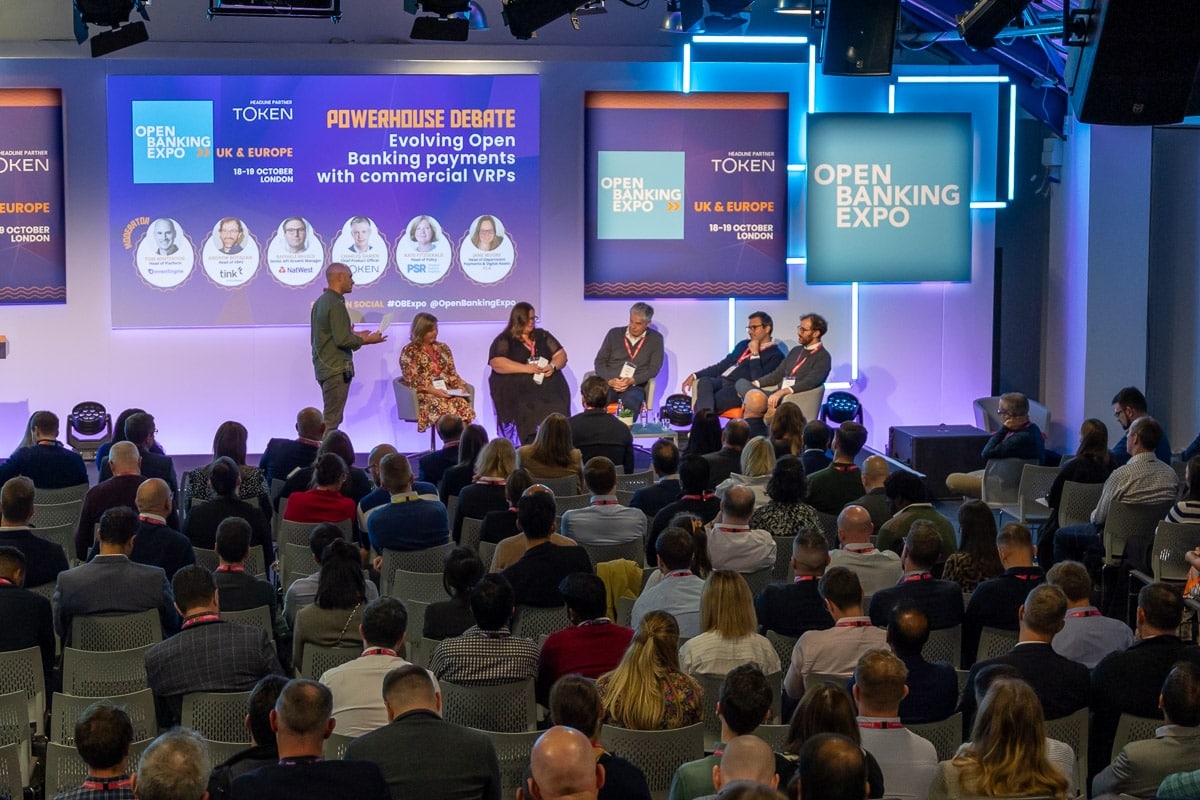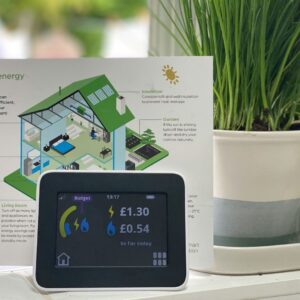Commercial variable recurring payments (VRPs) are “the best-in-class of API technology” that both consumers and merchants can benefit from when a pilot goes live next year, according to speakers from NatWest, Tink and Token.io taking part in a panel debate at Open Banking Expo UK and Europe.
Raffaele Brusco, senior API growth manager at NatWest, said: “From a NatWest point of view, we are quite excited about the opportunity of non-sweeping [VRPs] because, in our opinion, it brings benefit to the customer and to the merchant.”
He told delegates that customers “can be more in control of their expenses”, because when setting up a VRP, they are being asked “to define a limit, parameters”.
“We also think it’s the best-in-class of API technology, it’s also a secure payment method,” he added.
The Powerhouse Debate, titled ‘Evolving Open Banking payments with commercial VRPs’, was moderated by Tom Winterton, head of platform at InvestEngine.
He opened the panel debate by explaining that since launching “our version of sweeping VRP three months ago”, InvestEngine has “seen great uptake with our customers”.
“It’s effectively a replacement of direct debits and our customers really love the instant nature… and they’ve really run with it,” said Winterton.

Tink’s Andrew Boyajian
Also on the panel, which took place on the Main Stage on Day One, were Andrew Boyajian, head of VRPs at Tink, Charles Damen, chief product officer at Token.io, as well as Jane Moore, head of department payments and digital assets at the Financial Conduct Authority, and the Payment Systems Regulator’s head of policy Kate Fitzgerald.
Tink’s Boyajian pointed to user experience and speed of payment as the clear benefits of commercial VRPs, also known as non-sweeping VRPs.
He said that while card payments require manual entry or input, “one of the best things about commercial VRP is it eliminates that”, making it “incredibly easy, then, for any account holder to begin to create a mandate”.
Boyajian added: “Direct debit can take a couple of days to settle. Some merchants, in the interim, may be using their own operating capital to make ends meet and, essentially, assume that settlement is going to come in. Often merchants don’t realise that, if they do that, there’s a cost.
“But VRP – because it settles on Faster Payments – it’s near real-time. So, it’s a fantastic way to look at some of the actual costs involved that might not be top of mind, like interchange, and begin to realise savings as well.”
VRP pilot timeline
Fitzgerald, who chairs the VRP Working Group, said: “What we’re trying to do… is really focus on some lower-risk use cases – some ways of getting this model out there, this way of paying out there, into a really scalable product, but perhaps limiting the risk that we take.”
She was asked by Winterton about the “aspirational deadline” for a VRP pilot.
“By the end of this year, you’ll see the findings of the VRP Working Group and also some key next steps. We definitely want to deliver that and we are running very fast to deliver that for everybody by the end of this year,” she replied.
“We want it to be possible to use some of these low-risk use cases by the second half of next year. Now, that’s quite aspirational and we have yet to conform around a detailed plan for that.”

NatWest’s Raffaele Brusco
NatWest’s Brusco noted that the Joint Regulatory Oversight Committee’s intervention, “shakes the tree in terms of making clear to the other banks, [and] participants that by Q3/Q4 we want to have a pilot live”.
“In this market, we need coverage. Probably, we don’t need on day one all the banks, but at least one or two other banks to join to allow us to invest in this direction,” he told delegates.
“Because we are already live on a VRP pilot, I would love the industry to be a little bit more bullish in terms of use cases. If I look at my objective, for me next year I would love to have an ecommerce use case live on VRP. The sooner we start to work in parallel in that direction, the better.”
Token.io’s Damen added: “We firmly believe that VRP is a catalyst for banks to create an API economy. If we look at three to five years from now, banks will have monetisation models, not just for VRP but for lots of different APIs.
“Because banks have tons of very interesting assets that we, as PISPs and data aggregators, would like to provide to our customers – identity is one of those.”
He called banks “one of the few companies that really know your customer”.
Download Token.io and Open Banking Expo’s ‘The Future of Dynamic and Variable Recurring Payments 2023 Industry Survey Report’ here.










